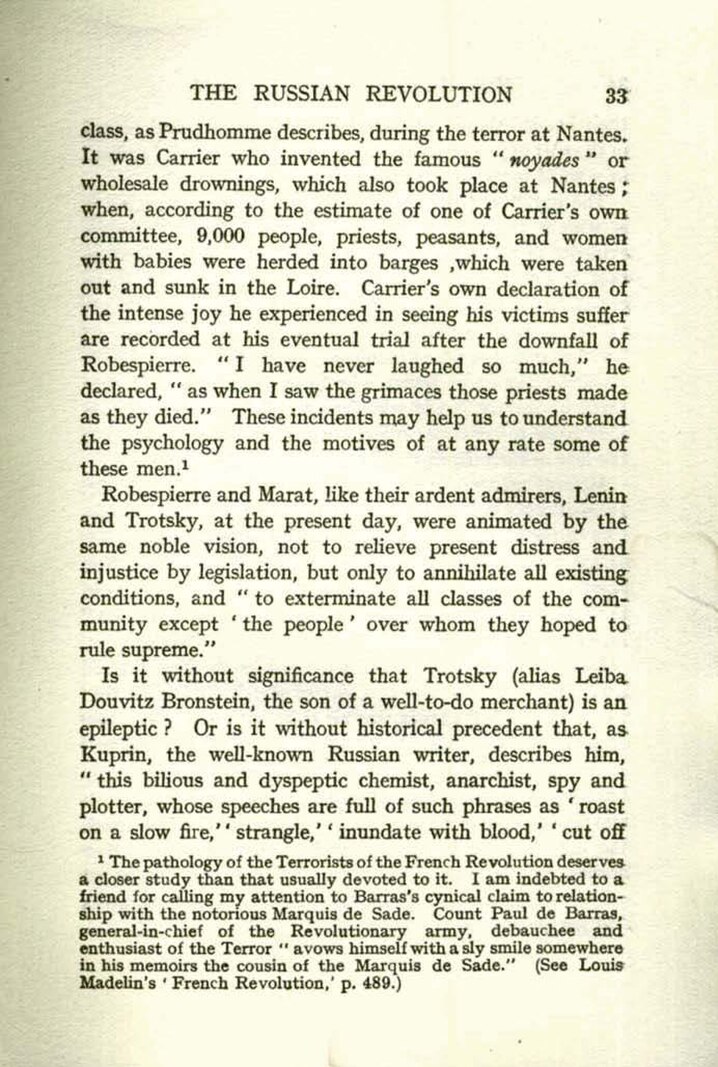class, as Prudhomme describes, during the terror at Nantes. It was Carrier who invented the famous "noyades" or wholesale drownings, which also took place at Nantes; when, according to the estimate of one of Carrier's own committee, 9,000 people, priests, peasants, and women with babies were herded into barges ,which were taken out and sunk in the Loire. Carrier's own declaration of the intense joy he experienced in seeing his victims suffer are recorded at his eventual trial after the downfall of Robespierre. "I have never laughed so much," he declared, "as when I saw the grimaces those priests made as they died." These incidents may help us to understand the psychology and the motives of at any rate some of these men.[1]
Robespierre and Marat, like their ardent admirers, Lenin and Trotsky, at the present day, were animated by the same noble vision, not to relieve present distress and injustice by legislation, but only to annihilate all existing conditions, and "to exterminate all classes of the community except 'the people' over whom they hoped to rule supreme."
Is it without significance that Trotsky (alias Leiba Douvitz Bronstein, the son of a well-to-do merchant) is an epileptic? Or is it without historical precedent that, as Kuprin, the well-known Russian writer, describes him, "this bilious and dyspeptic chemist, anarchist, spy and plotter, whose speeches are full of such phrases as 'roast on a slow fire,' 'strangle,' 'inundate with blood,' 'cut off
- ↑ The pathology of the Terrorists of the French Revolution deserves a closer study than that usually devoted to it. I am indebted to a friend for calling my attention to Barras's cynical claim to relationship with the notorious Marquis de Sade. Count Paul de Barras, general-in-chief of the Revolutionary army, debauchee and enthusiast of the Terror "avows himself with a sly smile somewhere in his memoirs the cousin of the Marquis de Sade." (See Louis Madelin's 'French Revolution,' p. 489.)
